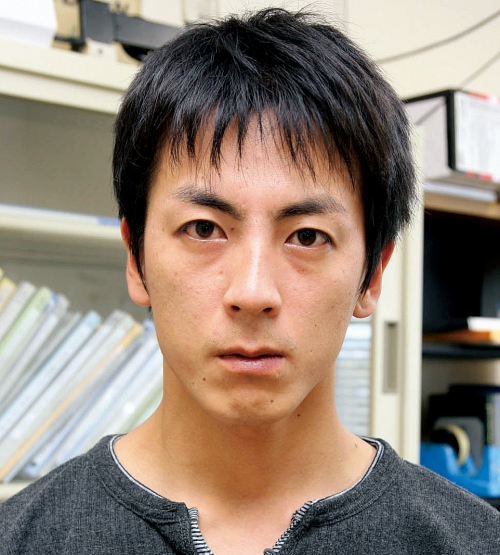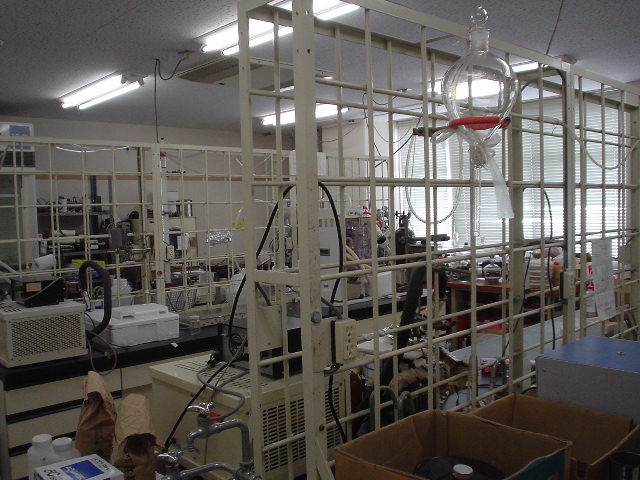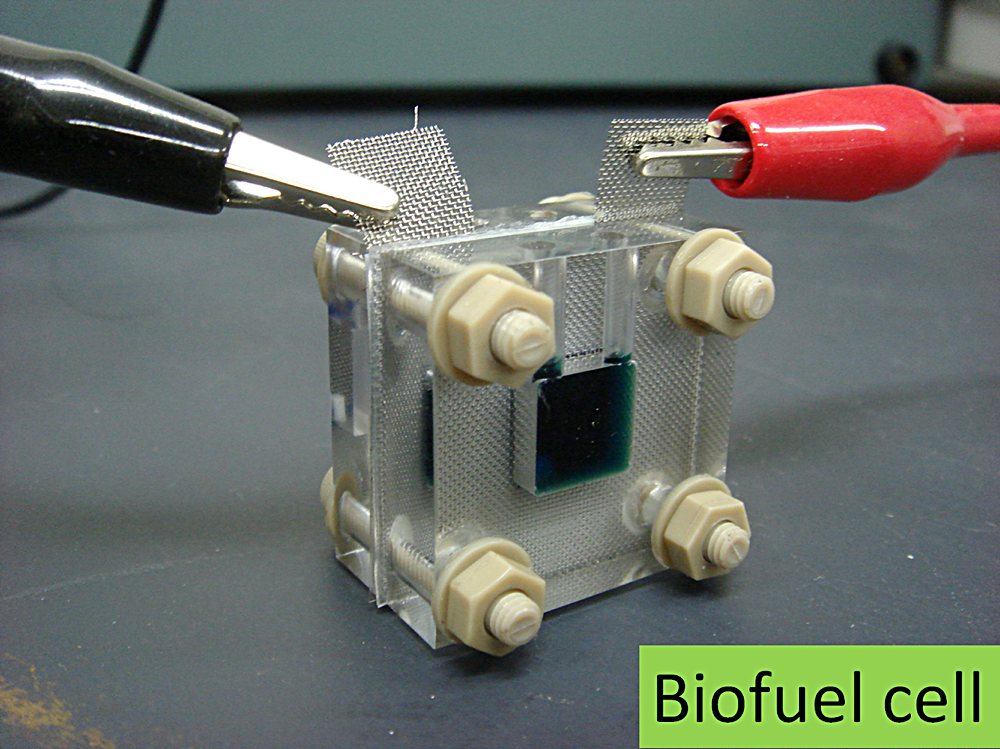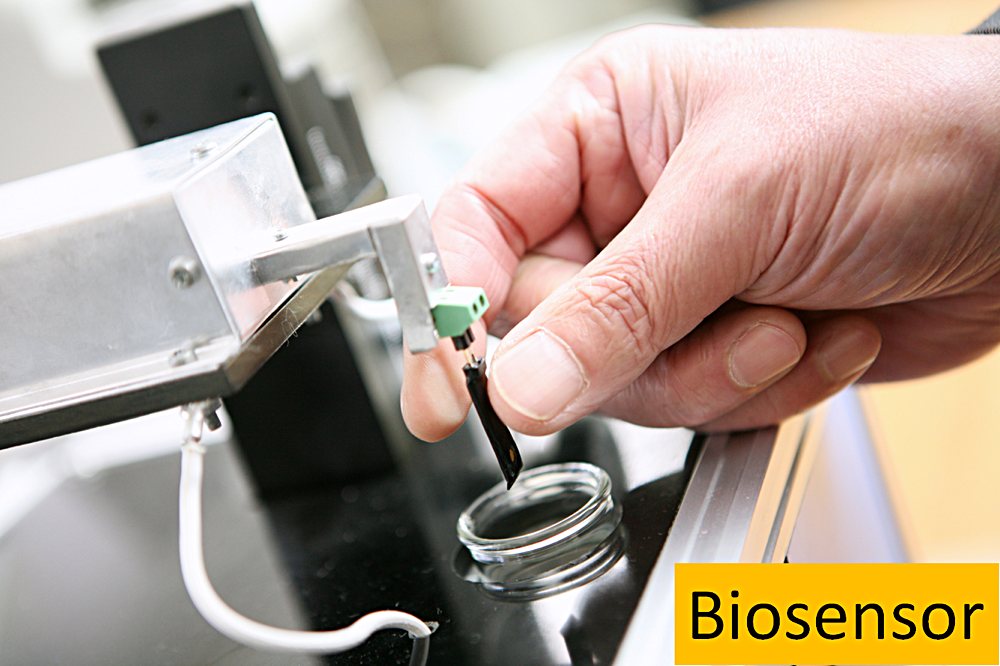Research
Bioelectronics

Takeshi Kuwahara
Associate Professor

The research in Laboratory of Bioelectronics aims at the development of hybrid materials and devices using biological and non-biological molecules. These materials and devices integrate active biological molecules into micro- and nano-fabricated infrastructures generated with synthetic organic chemicals, polymers and other substances. The research combines the knowledge of biology and chemistry with the engineering design principles. Our current effort is placed on the development of biosensors and energy-converting devices (biofuel cells). Biosensors will be used as super-sensitive diagnostic devices with numerical readouts, whereas energy-converting devices will use plant-based waste materials to generate electricity. The research members have the themes relevant to such matters as followings: fabrication of bioelectrodes by covalent immobilization of enzymes on conducting polymer films; construction of novel systems combining biochemical and electrochemical reactions (application of bioelectrodes to sensors and fuel cells); detection of a minute mass change by means of a quartz crystal oscillation system for biosensing and nanoanalysis.
- Amperometric sensing with conducting polymer electrodes bearing enzymes.
- Development of biofuel cells driven with glucose and ascorbic acid.
- DNA detection with a quartz crystal device for determination of microorganisms.

